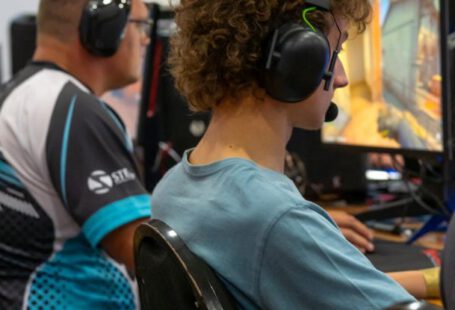As gaming continues to evolve and become more immersive, gamers are always on the lookout for ways to enhance their gaming experience. One crucial aspect that gamers often consider is the performance of their gaming setup. Gaming benchmarks serve as a useful tool to gauge how well a system can handle various games. However, several components play a significant role in determining these benchmarks. Understanding which components have the most impact on gaming benchmarks can help gamers make informed decisions when building or upgrading their gaming rig.
Graphics Card: The Powerhouse Behind Gaming Performance
When it comes to gaming benchmarks, the graphics card stands out as one of the most critical components. The graphics card, also known as the GPU (Graphics Processing Unit), is responsible for rendering images and videos on the screen. The GPU’s performance directly affects the visual quality, frame rate, and overall gaming experience.
Modern games are becoming increasingly complex and demanding in terms of graphics processing. A powerful graphics card with a high number of CUDA cores, VRAM capacity, and clock speed can significantly impact gaming benchmarks. Gamers often look for GPUs from reputable manufacturers like NVIDIA and AMD, known for producing high-performance graphics cards that can handle the latest games with ease.
Processor: The Brain of the System
While the graphics card plays a vital role in gaming performance, the processor (CPU) is equally important. The CPU handles various tasks, including game physics, AI calculations, and overall system management. A fast and efficient CPU can help reduce bottlenecks and improve overall gaming performance.
When it comes to gaming benchmarks, the CPU’s clock speed, number of cores, and cache size all contribute to the system’s ability to run games smoothly. Gamers often opt for processors from companies like Intel and AMD, known for producing high-performance CPUs optimized for gaming.
Memory (RAM): Keeping Things Running Smoothly
In addition to the graphics card and processor, memory (RAM) is another crucial component that affects gaming benchmarks. RAM plays a vital role in storing and accessing data quickly, which is essential for running games smoothly. Insufficient RAM can lead to performance issues like stuttering, lag, and long loading times.
When it comes to gaming benchmarks, the amount and speed of RAM are essential factors to consider. Gamers often opt for higher capacity RAM modules with faster clock speeds to ensure optimal performance when running demanding games.
Storage: Speeding Up Load Times
While storage may not have a direct impact on gaming benchmarks, it plays a crucial role in improving overall gaming experience. A fast and efficient storage solution, such as an SSD (Solid State Drive), can significantly reduce load times, allowing gamers to jump into their favorite games quickly.
Gamers often choose SSDs over traditional HDDs (Hard Disk Drives) for faster boot times, faster game loading times, and overall system responsiveness. While SSDs may not directly affect gaming benchmarks, they can enhance the overall gaming experience by reducing waiting times and improving system performance.
Cooling Solutions: Keeping Temperatures in Check
In the world of gaming benchmarks, cooling solutions often go unnoticed but play a crucial role in maintaining system performance. High-performance components like the graphics card and processor generate a significant amount of heat when running demanding games. Effective cooling solutions, such as aftermarket CPU coolers and case fans, can help dissipate this heat and prevent thermal throttling.
Gamers often invest in high-quality cooling solutions to keep their system running at optimal temperatures, ensuring consistent performance during gaming sessions. Overheating can lead to performance issues, system instability, and even hardware damage, making effective cooling solutions a must-have for serious gamers.
Power Supply Unit (PSU): Providing Stable Power
Finally, the power supply unit (PSU) is another component that can impact gaming benchmarks. A high-quality PSU provides stable power delivery to all components, ensuring consistent performance and preventing system crashes. Insufficient power supply can lead to system instability, performance issues, and even hardware damage.
Gamers often opt for PSUs with higher wattage ratings and efficiency ratings to ensure that their system has enough power to handle demanding games. Investing in a reliable PSU can help improve overall system stability and performance, ultimately impacting gaming benchmarks positively.
In Conclusion: Maximizing Gaming Performance
When it comes to gaming benchmarks, several components play a crucial role in determining the overall performance of a gaming system. From the graphics card and processor to memory, storage, cooling solutions, and the power supply unit, each component contributes to the system’s ability to run games smoothly and efficiently.
By understanding how each component affects gaming benchmarks, gamers can make informed decisions when building or upgrading their gaming rig. Investing in high-performance components and ensuring proper cooling and power supply can help maximize gaming performance and enhance the overall gaming experience. So, whether you’re a casual gamer or a hardcore enthusiast, paying attention to these key components can help you achieve the best possible gaming benchmarks and elevate your gaming experience to new heights.





